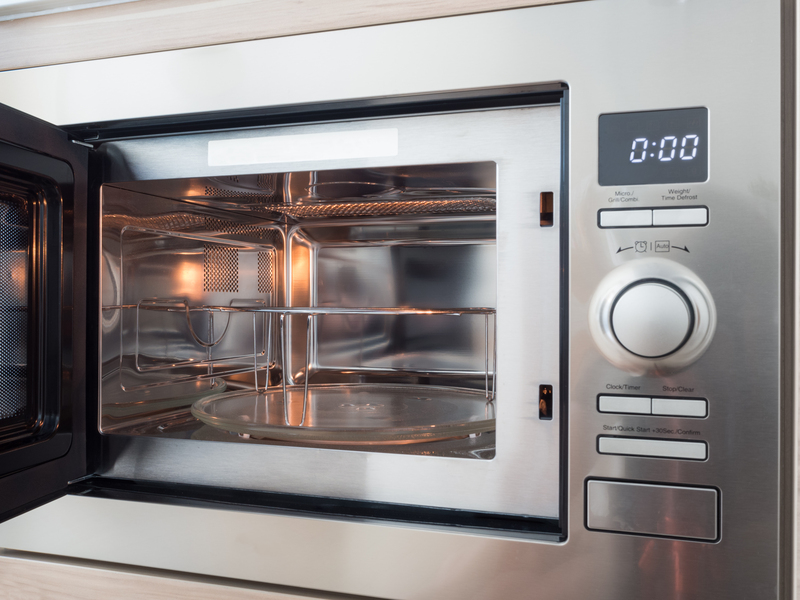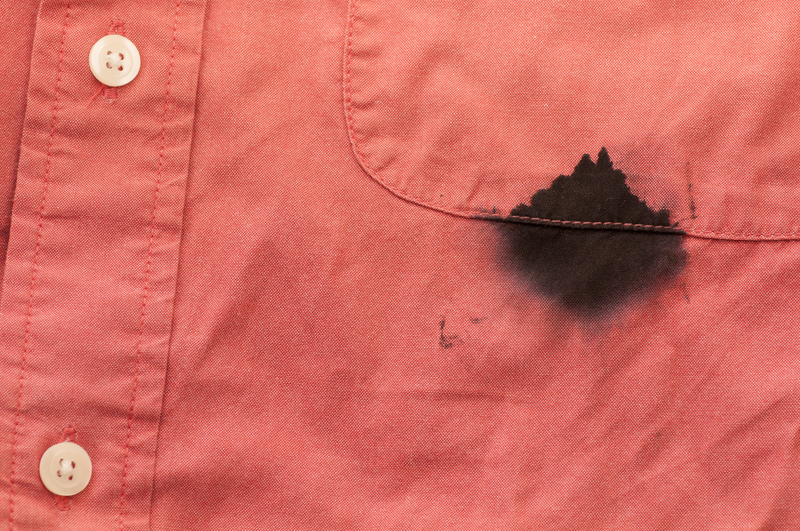Jewellery Cleaning Methods to Revitalize Any Collection
Posted on 14/08/2025
Jewellery Cleaning Methods to Revitalize Any Collection
Jewellery is more than just decorative--it holds sentimental value, marks special occasions, and reflects our personal style. Over time, however, even the most precious pieces can lose their shine due to daily wear, environmental factors, and simple exposure to air. To keep your collection gleaming, knowing effective jewellery cleaning methods is essential. In this comprehensive guide, discover diverse approaches to revitalize everything from heirloom rings to modern necklaces, ensuring each piece sparkles as brilliantly as the day you acquired it.

Why Regular Jewellery Cleaning Matters
Regularly cleaning your jewellery is not just about aesthetics; it's also about preservation. Dirt, oil, and residue accumulation can damage gemstones and tarnish precious metals. Furthermore, cosmetic and chemical build-up can weaken settings, increasing the risk of losing stones. Considering these factors, incorporating proper jewellery cleaning techniques into your routine becomes crucial.
- Preserves aesthetic beauty
- Prevents metal corrosion and tarnishing
- Keeps stones securely in place
- Reduces bacteria and skin irritants
Basic Jewellery Cleaning at Home
Before You Start: Assess Your Jewellery
Not all jewellery is created equal. Diamonds, gold, and platinum can withstand universal cleaning methods, whereas pearls, opals, and emeralds are sensitive and demand gentler care. Always check the manufacturer's recommendations or consult a professional when dealing with antiques, delicate stones, or unknown metals.
Essential Supplies for At-Home Jewellery Cleaning
- Soft-bristled toothbrush (new and clean)
- Mild dish soap
- Microfiber cloth or lint-free cloth
- Small bowl of warm water
- Soft, absorbent towel
Step-By-Step: Universal Cleaning Method
- Soak: Place your jewellery in a bowl of warm water mixed with a few drops of mild dish soap. Let it soak for 15-20 minutes to loosen dirt.
- Gently Scrub: Use a soft-bristled toothbrush to carefully scrub all surfaces, especially crevices where grime collects.
- Rinse: Hold the piece under running lukewarm water to wash away soap residue.
- Dry: Pat gently with a microfiber or lint-free cloth and let air dry completely before storage.
This simple method works for most gold, platinum, and diamond jewellery, but always double-check if your pieces can handle water.
Advanced Jewellery Cleaning Techniques
1. Ultrasonic Cleaners
Ultrasonic jewellery cleaners offer a professional-level cleanse by using high-frequency sound waves to agitate water and clean deeply. These devices effectively remove built-up dirt in hard-to-reach areas of rings, bracelets, and chains. However, ultrasonic cleaning is not recommended for:
- Porous stones like emeralds, opals, and pearls
- Jewellery with loose settings
- Antique or fragile pieces
Always read the user manual and consult a jeweller for advice on safe use for your collection.
2. Steam Cleaning
Steam machines use high-pressure steam to remove stubborn grease and oils. This method is frequently used by professionals and some at-home devices.
- Safe for diamond, platinum, and gold jewellery.
- Not suitable for soft or porous gemstones.
Let jewellery cool before handling, as steam can make metal hot.
3. Professional Jewellery Cleaning
For antique, high-value, or complex items, professional jewellery cleaning is the safest option. Expert jewellers assess each piece and employ specialized equipment to clean, polish, and restore items without risk of damage. Regular professional cleanings can extend your jewellery's life and keep it in top shape.
Specific Cleaning Methods by Jewellery Type
Cleaning Silver Jewellery
- Use a designated silver polishing cloth for regular cleaning to remove tarnish and restore shine.
- A baking soda paste (three parts baking soda to one part water) can be applied with a soft cloth for a deeper clean.
- Avoid submerging silver with gemstones, as certain stones are sensitive to chemicals.
Cleaning Gold Jewellery
- Gold is resilient but prone to scratches. Use a soft brush and gentle soap for cleaning.
- Avoid harsh abrasives or toothpaste, which can damage the finish.
- If your gold jewellery is set with gemstones, check compatibility before cleaning.
Cleaning Gemstone Jewels
- Diamonds: Soak in soapy water, scrub gently, and rinse. Avoid chlorine or harsh chemicals.
- Sapphires and Rubies: Similar treatment as diamonds; avoid strong detergents.
- Pearls and Opals: Wipe gently with a damp cloth, and avoid soaking in water. Never use ultrasonic cleaners.
Cleaning Costume and Fashion Jewellery
- These pieces typically use non-precious metals and glue-set stones.
- Clean with a damp cloth; avoid soaking or exposure to alcohol, as adhesives may break down.
- Store in dry, cool places to prevent tarnishing and maintain finish.
Natural and Eco-Friendly Jewellery Cleaning Methods
For those who prefer eco-friendly jewellery cleaning options, natural ingredients can be effective on many types of jewellery.
- Baking Soda Solution: Make a paste with baking soda and water for silver. Apply gently and rinse well.
- Vinegar and Baking Soda: For sterling silver, submerge jewellery in half a cup of white vinegar mixed with two tablespoons of baking soda for 2-3 hours, then rinse and dry.
- Lemon Juice: Submerse tarnished brass or copper pieces in lemon juice mixed with a pinch of salt for a few minutes, then rinse thoroughly.
- Olive Oil and Lemon Juice: Combine for polishing gold; buff lightly with a microfiber cloth.
Note: Test a small area first and avoid harsh natural acids on sensitive stones or pearls.
What NOT to Do: Jewellery Cleaning Don'ts
Improper jewellery cleaning techniques can permanently damage your treasures. Steer clear of these common mistakes:
- Avoid using toothpaste (too abrasive)
- Never use harsh household cleaners, bleach, or ammonia on vulnerable stones
- Do not submerge glued or porous items in liquids
- Refrain from using paper towels, which can scratch surfaces
- Be cautious with ultrasonic machines on soft, cracked, or treated gems
Jewellery Cleaning Tips for Longevity
- Clean regularly. A simple wipe-down after wearing can combat daily residue.
- Store properly. Keep items in soft pouches or lined boxes to minimize exposure to air and humidity.
- Remove jewellery during workouts, swimming, or before applying cosmetics.
- Inspect periodically for loose stones or prongs to prevent loss.
When to Seek Professional Jewellery Cleaning Services
While home jewellery cleaning methods can address most needs, consider professional services when:
- Your piece is highly valuable or a family heirloom
- The item has intricate settings or fragile gemstones
- You notice persistent tarnish or waxy build-up
- There are signs of physical damage (loose stones, bent prongs)
A professional jeweller will have access to specialized equipment, solutions, and expertise to handle delicate jobs with care.

Frequently Asked Questions about Jewellery Cleaning
How often should I clean my jewellery?
For pieces worn daily, aim to clean at least once a month. Items worn occasionally may need cleaning every 2-3 months, while pieces with delicate gemstones can be cleaned less frequently, but should be wiped gently after each use.
Can I use household cleaners to clean my jewellery?
Most household cleaners are too harsh and contain chemicals that can damage metals and stones. Stick to mild dish soap or designated jewellery cleaning solutions.
Is it safe to use ultrasonic cleaners at home?
Ultrasonic cleaners are effective for many types of jewellery but are not suitable for all gems. Avoid using them for pearls, opals, emeralds, or pieces with glued settings.
What is the biggest cause of tarnishing?
Exposure to moisture, air, sweat, and cosmetics leads to tarnishing. Storing jewellery in air-tight containers or anti-tarnish pouches can help reduce tarnish.
Conclusion: Bring New Life to Your Jewellery Collection
With regular care and the right jewellery cleaning techniques, your treasured collection can retain its brilliance and value for generations. From daily wipe-downs and safe DIY cleaning solutions to professional jewellery restoration, there is a method suited for every piece--old or new, delicate or robust.
Make jewellery cleaning part of your self-care routine to ensure that each necklace, ring, earring, or bracelet always lights up your look. And when in doubt, always opt for the gentler method or seek expert advice. Happy cleaning!
Latest Posts
Top Strategies for Tenants' End of Tenancy House Cleaning
Create a Pet Odor-Free Sanctuary in Your Home
Maximize Your Living Comfort with a Dust-Free Home
Conquer Grease: The Simplest Techniques for Enamel Oven Tray Cleaning
Declutter and Sparkle: Unveil Your Home's Potential with Our Checklist




